Validation, Loves Substitute
The search for external validation as a substitute for love: its origins, mechanisms, and the liberating recognition that we are already the wholeness we seek.


“Narcissus” by Caravaggio
External validation seeking happens when we look outside ourselves for confirmation of our worth, value, and lovability. This pattern isn't random—it develops when, as children, we experience love as conditional rather than unconditional.
I was inspired to explore this topic after observing two revealing examples that illuminated how this conditioning operates, both in family dynamics and social media culture.
The first was a former professional fighter discussing coaching his son in baseball. In a podcast clip, he described a moment where his son wasn't performing well during a game. With the cameras rolling and his parenting on display, he recounted telling his son, "If you don't start playing better, then maybe this isn't for you."
What struck me wasn't just the words themselves but the certainty with which he believed this approach was beneficial—that pushing his son with conditional approval would somehow foster excellence. This isn't to vilify anyone; he's simply reproducing patterns he likely experienced himself. Most parents who apply this approach genuinely believe they're preparing their children for a competitive world where excellence is rewarded and mediocrity is punished.
Yet beneath this "tough love" approach lies a profound conditioning mechanism: the child learns that their value is contingent on performance. The unspoken message is that life's purpose is to win and outperform others, and if this condition isn't met, then love, attention, and approval will be withheld. The child doesn't receive the message "I love you regardless of how you perform," but rather "I love the version of you that excels."
The second example came from examining a particular Instagram account with a substantial following. Scrolling through the posts and the corresponding comments revealed a striking pattern: the more obviously performative the content, the more negative the response from followers.
What makes this example particularly illustrative is the transparency of the dynamics at play. The posts aren't simply sharing authentic moments or genuine self-expression; they're carefully curated performances designed to elicit approval. Yet followers seem to intuitively sense this inauthenticity. The comment section becomes a battleground where the very validation being sought is emphatically withheld, often with harsh criticism.
This creates a painful feedback loop: the more desperately validation is sought, the more elusive it becomes. This account shows in vivid detail how external validation is ultimately an unsustainable strategy for feeling worthy—it's like trying to fill a bucket with a hole in the bottom.
What connects these seemingly different examples is the underlying conditioning that begins in childhood. When parents consistently tie their approval to performance—whether in sports, academics, or behavior—children internalize a profound misunderstanding about love and worthiness.
The young brain, still developing its fundamental understanding of how relationships work, encodes this lesson at a deep neural level: "I am lovable when I perform well; I am not lovable when I don't." This isn't just an intellectual understanding—it becomes embedded in the emotional brain, in how a child feels about themselves at their core.
Children lack the cognitive capacity and life experience to question this arrangement. They cannot step back and think, "Perhaps my parent is transferring their own insecurities onto me," or "Maybe love shouldn't be conditional on performance." Without this critical perspective, they naturally internalize the belief that there's something fundamentally wrong with them when they don't meet expectations.
What begins as an external dynamic—seeking approval from parents—gradually becomes internalized. By adolescence, the child has fully incorporated these standards and begins to withhold love from themselves when they don't measure up. They become their own harshest critic, their own disapproving parent.
This psychological mechanism explains why so many adults compulsively seek validation despite its diminishing returns. It's not a conscious choice but a deeply ingrained survival strategy. The developing brain has literally organized itself around this fundamental misunderstanding about worthiness and love.
By adulthood, the pattern operates largely beneath conscious awareness. The social media user obsessively checking likes, the employee working themselves to exhaustion for recognition, the partner constantly seeking reassurance—these behaviors all stem from the same root cause: conditional love in childhood that taught them their inherent value was questionable and needed continual external confirmation.
Social media platforms become perfect stages for this dynamic to play out publicly. They offer the promise of unlimited validation but deliver it unpredictably enough to create addiction. Every post becomes a performance, every like a momentary salve for the deep wound of conditional love.
What makes this pattern so difficult to change is that it's not just a bad habit—it's woven into one's fundamental sense of identity. To the conditioned mind, giving up the pursuit of external validation doesn't feel like liberation; it feels like accepting that you'll never be loved. The fear beneath the validation-seeking isn't trivial; it's existential.
Recognizing these patterns—whether in a parent coaching their child or in social media behavior—offers us a mirror for our own conditioning. Without judgment, we can begin to observe these dynamics both in others and in ourselves. This awareness doesn't immediately dissolve the pattern, but it creates a crucial space between stimulus and response, between the conditioned urge to seek validation and the automatic behavior that follows.
This space, however small at first, is where our freedom begins.
In adulthood, the ego (or false self) continues this pattern of performing and conforming to derive praise, appreciation, and approval from the external world. The trick is that the ego doesn't present this as "seeking external validation"—it disguises it as normal behavior.
The ego is masterful at convincing us we're not outsourcing our worth and well-being when we actually are. It doesn't want us to see that we've become dependent on others' opinions for our sense of self.
When we worry about what others think of us, the ego frames this as being socially appropriate or considerate. When we exhaust ourselves working for recognition, the ego calls this ambition or responsibility. When we change our appearance, opinions, or behavior to fit in, the ego tells us we're being adaptable.
This reframing serves a crucial purpose: it protects us from facing the uncomfortable truth that we're still operating from childhood conditioning. The ego knows that if we recognized our behavior as validation-seeking, we might question it—and questioning could lead to change.
Perhaps the ego's most effective tactic is making the alternative seem frightening. It suggests that if we stop seeking external validation, we'll become selfish, lazy, or socially rejected. It asks, "Who would you even be without others' approval?" This existential fear keeps us trapped in the pattern even when we intellectually understand its limitations.
The ultimate irony is that the ego presents itself as our protector when it's actually perpetuating our suffering. By keeping us focused on external validation, it prevents us from discovering the more fundamental truth: that our worth isn't something to be earned but something to be recognized as already present.
In the same way an addiction to a substance or habit is a coping mechanism for emotional pain, seeking external validation is a coping mechanism for not feeling love within yourself. It's not helpful to simply try to stop seeking validation without addressing the underlying pain first.
When we try to change behavior without addressing the root cause, we often end up substituting one form of external validation for another. We might stop seeking approval from family members only to seek it from romantic partners. We might stop seeking it from colleagues only to seek it from social media followers. We might even stop seeking it from others only to seek it from our own rigid standards of self-improvement—still measuring our worth by external metrics, just ones we've internalized.
Consider how many "self-improvement" efforts are actually sophisticated forms of the same pattern. The person constantly striving to be "better" is often operating from the same conditional-worth belief system as the obvious people-pleaser. Both are working from the premise that their current self is insufficient and needs enhancement to be worthy of love and acceptance.
What's needed instead is a shift at the level of identity—recognizing that what we've been seeking outside ourselves is what we already are at our core. This recognition isn't achieved through effort or more knowledge, but through directly experiencing our inherent completeness beneath the conditioning.
This is why meditation and mindfulness practices can be so transformative for breaking the external validation pattern. They allow us to experience our intrinsic awareness—the part of us that witnesses thoughts and emotions without being identified with them. This witnessing presence has a quality of completeness and peace that doesn't depend on external circumstances.
Through consistent practice, we begin to recognize that this awareness—not our social performance, achievements, or others' opinions—is our most fundamental identity. From this recognition, a profound shift occurs: we no longer need to seek what we already are.
This approach may seem counterintuitive in a culture that emphasizes doing over being. We're taught that change requires action plans, measurable goals, and constant effort. But the shift away from external validation seeking requires something different—it requires looking directly at who we are beneath our conditioning and recognizing what's already true rather than trying to become something new.
This isn't to suggest that the process is instantaneous or easy. The neural pathways of conditional self-worth run deep, and they don't disappear overnight. But with consistent practice, their grip loosens. The voice that says "I'm not enough as I am" gradually becomes less convincing as we experience moments of our inherent completeness.
Knowing Yourself as Love
The way to feel love within yourself is to know yourself as love—to know who you really are. This isn't about adding anything to yourself but rather discarding false identities.
Knowing who you are can't be achieved through concepts, because what you are isn't a concept. The mind can only conceive of concepts, and your true nature transcends concepts. So rather than trying to define who you are, it's more helpful to become aware of and discard who you are not—the mind-made, false egoic self.
This approach works because you cannot become more of what you already are, but you can cease mistaking yourself for what you are not. Those who seek validation externally are unaware of their true self as love. Love doesn't seek validation outside itself—it doesn't need to prove itself or convince anyone of anything.
Consider how absurd it would be for the ocean to go searching for water, or for the sun to go searching for light. In the same way, when we know ourselves as love, we recognize the absurdity of seeking love and validation from outside sources. How can you find what you already and always are?
Those who don't know themselves as wholeness (which is another word for love) will seek artificial love or validation outside themselves. The path to freedom isn't adding new behaviors but recognizing what you've always been beneath the conditioning.
This recognition requires a particular kind of inquiry—not intellectual analysis but direct experience. Instead of trying to figure out who you are, you might ask, "What am I aware of right now?" and then, "What is aware of all this?" This simple shift of attention from objects of awareness to awareness itself can reveal what you've always been beneath the changing contents of experience.
Another approach is to notice what remains constant throughout all your experiences. Thoughts, emotions, sensations, and circumstances constantly change, but something unchanging witnesses it all. This unchanging awareness has a quality of completeness that doesn't depend on external validation.
The Path of Self Love
The journey of freeing yourself from external validation seeking is one of remembering what you've always been beneath the layers of conditioning that taught you love must be earned.
Common self-love practices often focus on listing positive qualities about yourself or recalling achievements. A non-dualist would say this is merely listing your attachments—the things you've connected to your sense of self and worth. Such practices are outdated and have limited use because they still operate within the framework of conditional self-worth. They subtly reinforce the idea that your value comes from what you do, have, or are in relative terms.
True self-love doesn't come from constantly reminding yourself of your positive qualities or good deeds. It comes from remembering that what you ultimately are is the unchanging light of pure consciousness. This consciousness is complete and perfect already—it doesn't need validation or improvement. It is the awareness in which all experiences arise, exist, and dissolve.
This recognition is fundamentally different from the ego's attempts to feel worthy through accumulating positive self-assessments. It's a direct realization of your essential nature beyond all the temporary aspects you've mistaken yourself to be. It's not about thinking better thoughts about yourself but recognizing the awareness that witnesses all thoughts.
When this recognition deepens, the compulsive search for external validation naturally subsides. Not because you've perfected yourself or accumulated enough approval, but because you've recognized the absurdity of seeking what you already are. The ocean doesn't thirst, and pure consciousness doesn't seek approval.
This doesn't mean relationships and engagement with the world cease to matter. Rather, they transform from being sources of validation to expressions of your inherent completeness. You no longer need others to feel worthy, but you can enjoy genuine connection from a place of wholeness.
The path home is direct and simple, though not always easy. It involves repeatedly turning attention back to the awareness that is reading these words right now—the consciousness that has been present throughout your entire life, unchanged by any experience, inherently complete and at peace. This is your true self, and recognizing it is the only lasting solution to the painful cycle of seeking external validation.






